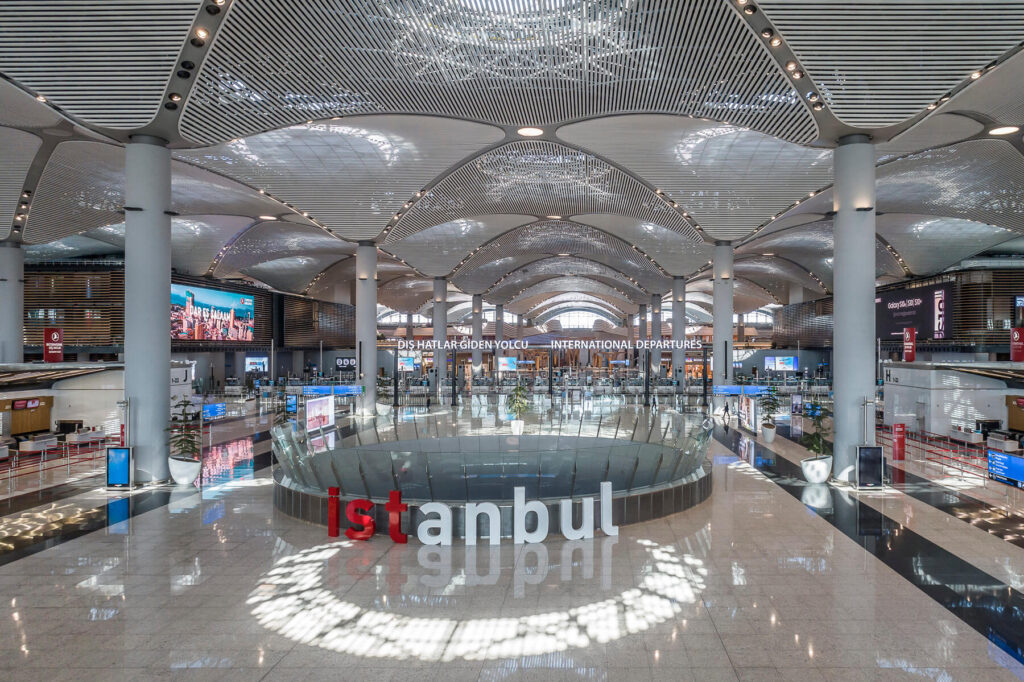iGA Istanbul Airport (IST/LTFM), which opened in 2018, is a rising star amongst modern airports and has rapidly become Turkiye’s gateway to the world offering global connections as a significant European & Asian hub.
It has now published its sustainability report for 2021-22 which details its roadmap toward Net-Zero which already includes significant drops in CO2 emissions.
The airport ended 2022 with 13% fewer emissions than the previous year which taking into account the lower rate of air travel in 2020 and & 2021 is impressive in itself but it is also 21% lower than the last pre-pandemic flying year of 2019.
iGA Istanbul Airport hopes to have its Scope 1 & 2 emissions, those emitted directly by the airport, reduced by 23% by 2025 and is working with stakeholders to further reduce Scope 3, or indirect, emissions.
iGA Istanbul Airport has been awarded the carbon accreditation certificate meaning it has met the requirements set out by the Airport Carbon Accreditation (ACA) Programme.
It has also been granted an A Score from the CDP Climate Change Programme, which ensures that investors worldwide have high-quality information about the sustainability risks and opportunities that affect companies, making it one of the 15 leading companies in Turkiye.
Kadri Samsunlu, CEO of iGA Istanbul Airport, comments that the sustainability transformation is both complex and urgent: “With our philosophy focused on adding value to society, sustainability has always been a top priority at iGA. 2022 marked a year where we advanced our efforts and took our sustainability journey to new heights.
“We measured our sustainability impacts, engaged in long-term planning, and restructured our goals and our sustainability management system. Within the scope of our 2030 plan, we have established a team of representatives and consultants from all departments within the organisation to define our sustainability vision and goals.
“With the ethos, ‘Focus on the planet, target for the future’, we set out to work towards bringing the mobility methods of the future to the present by focusing on the benefits of technology for people and the environment, to ensure a comfortable and safe journey for all our guests at this meeting point of diverse cultures. As a global player, iGA is determined to lead the way in making mobility services sustainable. Indeed, our stakeholders’ contribution has had a significant role during this transition.”
iGA Istanbul Airport replaced Istanbul Ataturk in 2018, which was one of the busiest airports in Europe. It is a major hub for Turkish Airlines which offers worldwide connections from its position as a city spanning Europe and Asia.
It is located north of Central Istanbul and was built on land that was repurposed from open-pit coal mines which were filled in to allow construction.
The airport handles around 65 million passengers per year and has almost half a million aircraft movements making it the busiest airport in Europe beating London Heathrow (LHR/EGLL) in 2022 by almost 3 million passengers.

